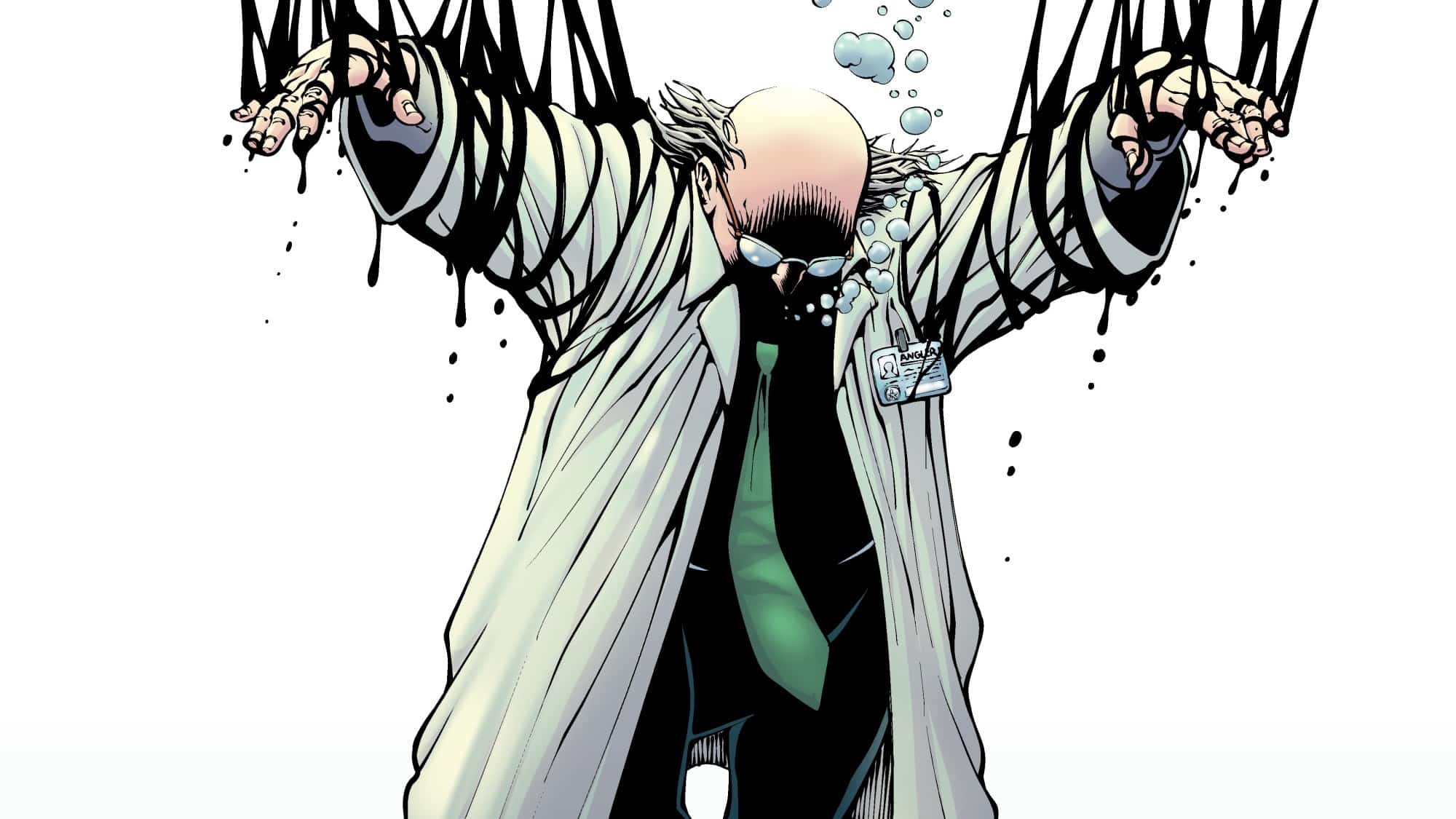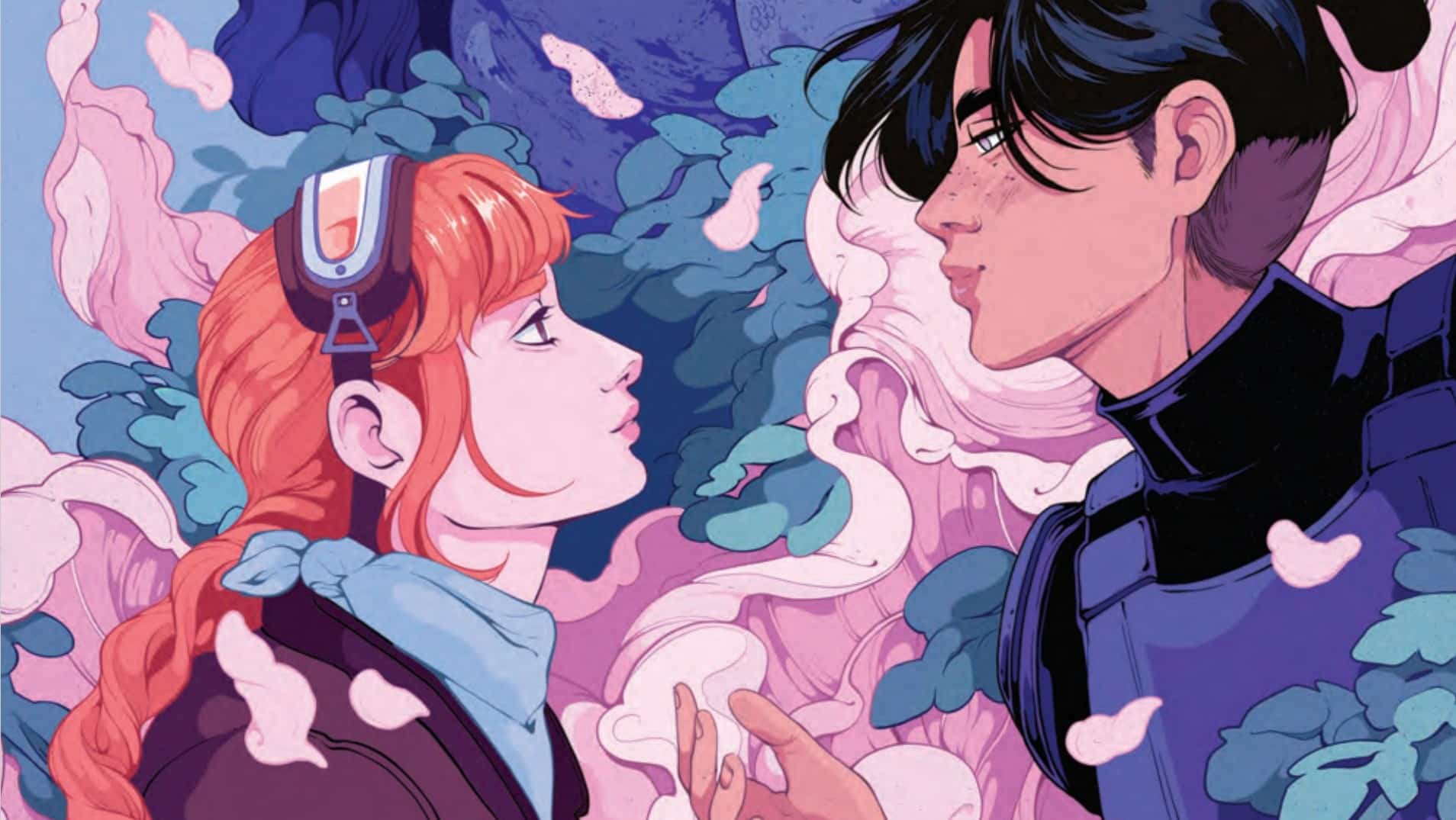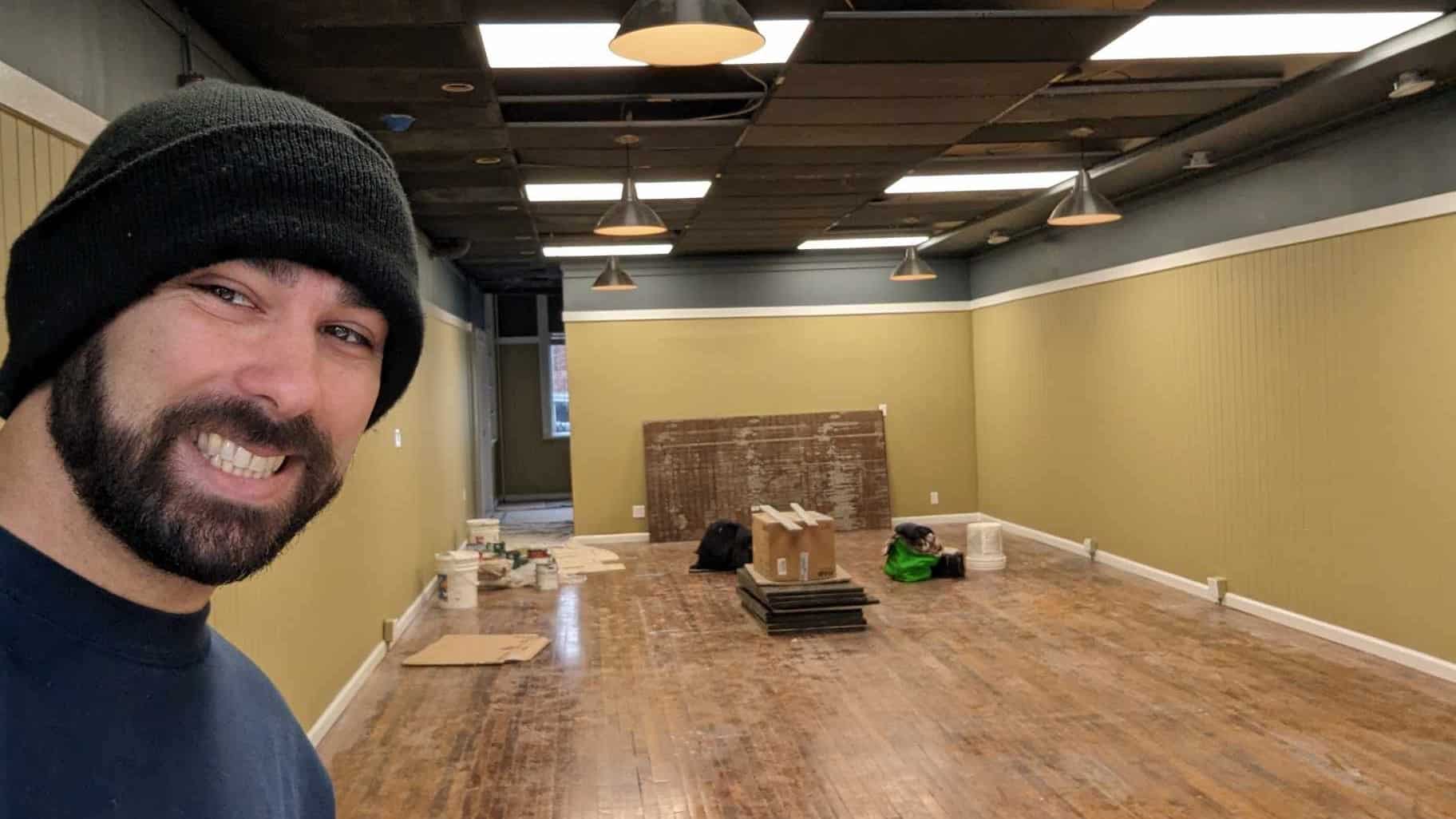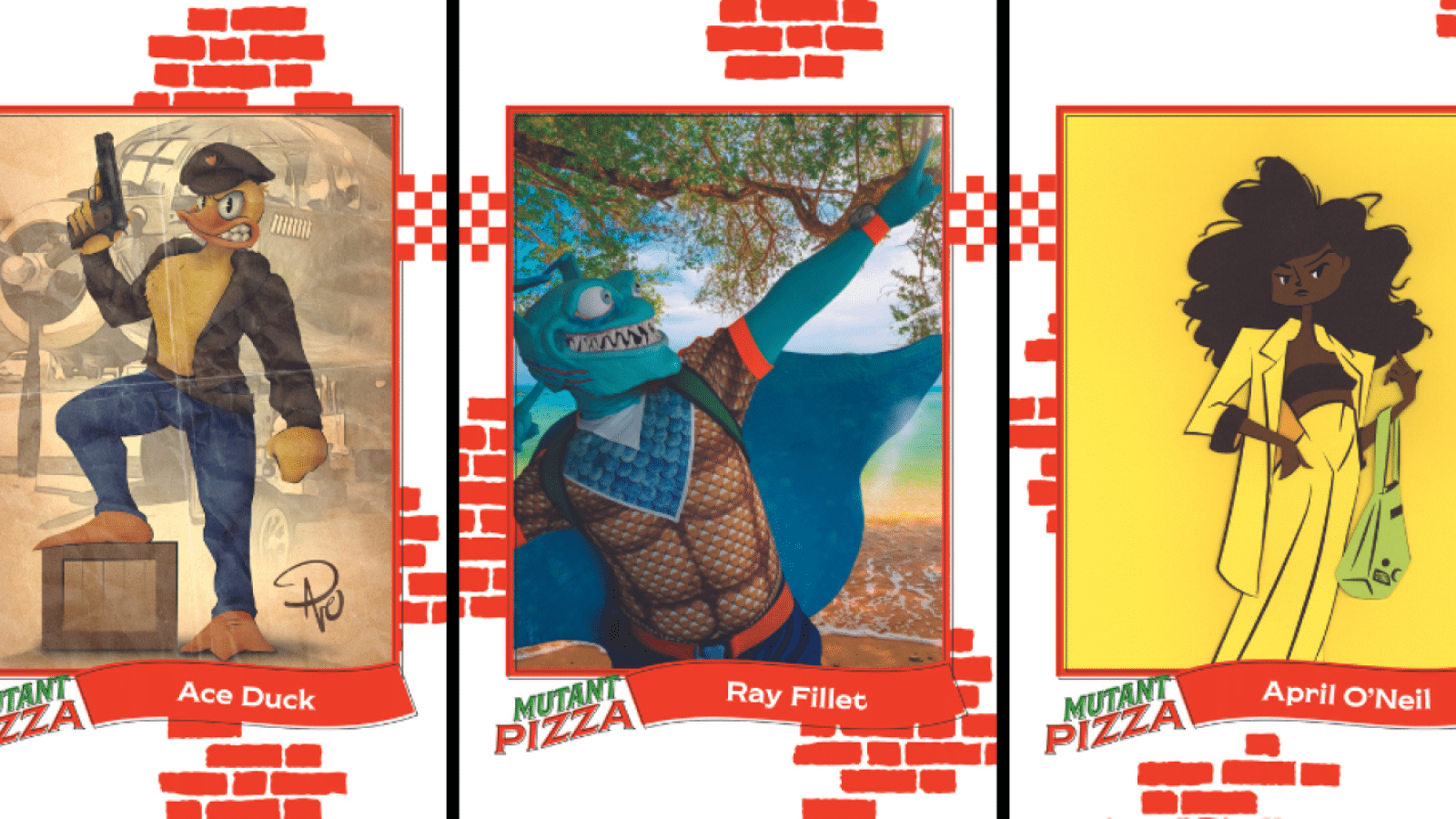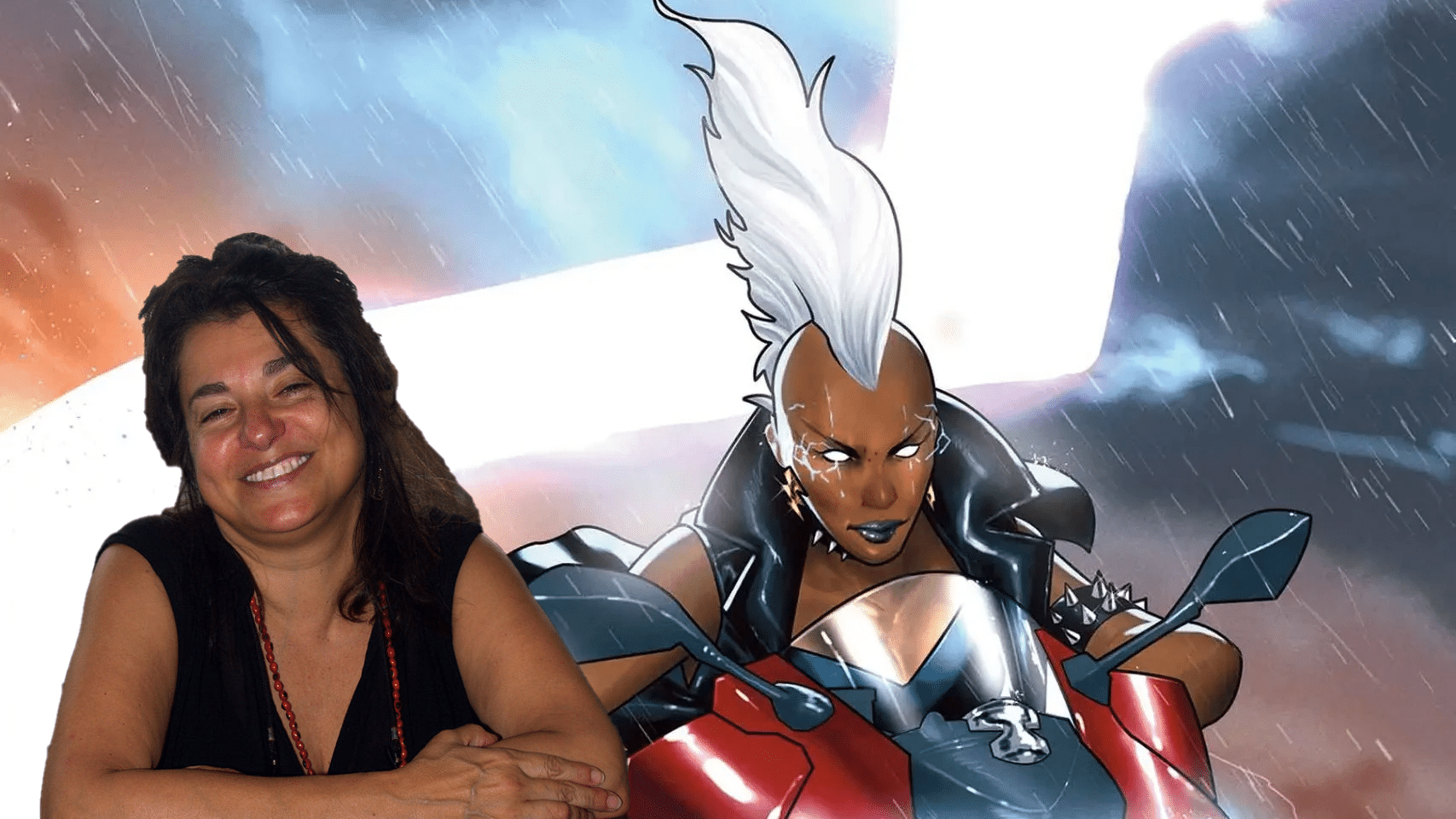Will Robson is excited to talk about Between the Devil and the Deep Blue Sea, his comic about a team tasked with cleaning up ocean pollution whose mission quickly goes bad. He said the underwater horror book was inspired partly by the fact that he saw a double feature of Jaws and The Exorcist when he was 5.
“I wanted to take all my childhood fears and put them into one story,” the UK-based Robson said. “It’s kind of a love letter to my past of the stuff that scares me.”
It was also a pandemic project he took on to push himself as a writer while primarily being known as an artist on books like Marvel’s Damage Control, Spider-Ham and Future Foundation.
For the better part of the past two years, it looked like Devil had a home at IDW. He began pitching the book just as the publisher was developing a line of new, original comics that would soon become home to work by names like Scott Snyder, G. Willow Wilson and Cavan Scott.
At first, Devil went through many of the same hurdles many original books go through. The pitch process was lengthy. Another artist had originally been attached, so Robson could focus on writing, but that person had to back out due to a medical issue. But things were in motion, and Robson was looking forward to a 2024 release.
Until he wasn’t.
Robson was about two and a half issues into writing the five-issue miniseries and five pages into drawing it earlier this month when he was notified — right before bed — that IDW had canceled the book before it was even announced to the public.
“At first when I saw that the book was being canceled, I was like, ‘Is this because I was a bit slow on the art, because I’ll speed up the art,’” he said. “And they said, no, it’s nothing to do with the quality of my work, it’s just a company issue.”

According to Robson, IDW cited a restructuring of its publishing scheduling in giving him back the rights to Devil. It wasn’t Robson, it was IDW.
“Classic breakup, right?” he said. “I didn’t even know it was a possibility that they could just do that. I understand books not selling well and then those getting canceled — I’ve made plenty of those books at Marvel — but a book just suddenly being canceled in mid-production, early production as well, was just shocking.”
IDW did not respond to an email from ComicsXF seeking comment.
Robson wasn’t the only one affected. Regine Sawyer posted on Bluesky about a project being canceled. Skylar Patridge posted on X (the social media platform formerly known as Twitter) about a project being canceled. ComicsXF attempted to reach both creators via the email forms on their websites and, in Patridge’s case, via X DM, for additional comment.
IDW announced its Originals program in April 2022, promising a line of new concepts and comics like Dark Spaces: Wildfire by Snyder and Hayden Sherman; Trve Kvlt by Liana Kangas and Scott Bryan Wilson; and The Hunger and the Dusk by G. Willow Wilson and Chris Wildgoose. It felt like a righting of the ship and a commitment to new forms of storytelling in the wake of news that the publisher would be losing the license to make Transformers and G.I. Joe comics at the end of that year, to Image’s Skybound imprint.
The past couple years have brought multiple such seismic shifts to IDW, best known as the home of comics like Locke & Key, Teenage Mutant Ninja Turtles, Star Trek, Sonic the Hedgehog and My Little Pony. In September 2021, the publisher announced it was moving to Penguin Random House for periodical distribution, following in the footsteps of Marvel. In January 2022, the G.I. Joe and Transformers news dropped. In April of this year, perhaps the biggest shakeup of all, IDW laid off nearly 40% of its staff. Hence the likely need to restructure its publishing calendar.
On one hand, pushing a line of originals is risky business when you’re known primarily as a publisher of licensed books. On the other, originals are the content you can package and attempt to sell to Hollywood as potential for TV and film adaptations. On yet a third hand, it’s more difficult to do that in a market in which streaming subscriptions have stagnated and existing projects have ground to a halt amid ongoing actors and writers strikes.
Ultimately, however, it always comes down to this important question: Did the books sell?

“Nothing sold particularly well,” said John Bush, manager of Dewey’s Comic City in Madison, New Jersey. “Dark Spaces did OK for the first few issues, Earthdivers had a little buzz that didn’t amount to even as much as Dark Spaces, and one guy really, really liked Trve Kvlt.”
Bush cited a common lament of many retailers when it comes to the pitfalls of promoting original content: “From the start I was of the mind that the traditional comics marketing plan of ‘throw shit at the wall to see what sticks’ wasn’t going to pay off for this line. IDW’s reputation is that they’re a licensed book house, and it’s hard to get the audience to re-evaluate their perception of you. They were losing or had just lost Hasbro at that point, so I can see the desire to try and recreate BOOM’s success in pivoting from a licensing-heavy publishing line to original IP powerhouse, but I didn’t see anything in that lineup that I thought could be the next Something is Killing the Children or Once and Future.”
Given distributors no longer publicize sales charts, it’s dang-near impossible to determine how the books did on a national level.
IDW’s move was shocking, but sadly not the worst publisher move we’ve seen even in the past year. Don’t believe us, search the hashtag #ComicsBrokeMe. Or stories from late last year about AfterShock filing for Chapter 11 bankruptcy protection after a number of artists complained about not getting paid. Or the Action Lab lawsuit. Or Valiant going down to one title a month.
Robson, for his part, said he too has dealt with companies not paying, to the point where he was unable to put food on his family’s table.
“How am I supposed to live making comics when you keep coming up with all these excuses for why I haven’t been paid?” he said of those publishers, without naming names.
But in IDW’s case, Robson said he bears no ill will. “I love the editors I was working with,” he said. “I am hurt by what happened, and it has affected me, and my thoughts about working with them in the future have changed, but I’m not angry. These are businesses at the end of the day. That’s just the way it is sometimes.”
And at least for Between the Devil and the Deep Blue Sea, there’s a happy ending (though presumably not for the characters in the story — it is horror, after all). The book will launch as a crowdfunding campaign later this year on Zoop.

Robson spoke with a few publishers and platforms before Zoop came calling. According to Robson, they said: “Look, you have some momentum here with your post, we can try and build an audience off of that momentum so that you can get your book made. You’ll own 100% of the IP, and we’ll handle all the marketing and distribution, all that stuff.
“Their whole shtick is ‘Keep the creation to the creators, and we’ll do the rest.’”
It also gives Robson a chance to publish Devil later through a traditional publisher if the crowdfunding campaign is successful.
Reached for comment, Zoop co-founder and CEO Jordan Plosky said: “With Zoop, the creators will retain 100% of their rights, as we work for them, as opposed to the other way around. They maintain creative control, and can tell the story they want, without committee.”
A go-live date has not been determined. Robson has a Kickstarter launching Sept. 1 for a second issue of Outbreaks, his original zombie anthology comic. A Devil campaign is expected to come after that, hopefully in the next month or so, he said. He also will have a story in the Howard the Duck 50th anniversary special coming from Marvel in November.
“A lot of people are saying to me, ‘Forget that (Outbreaks), you should launch this (Devil) because you’ve got momentum on it, and they’re absolutely right, but I don’t want to squander my passion project, and I don’t want to affect the fans and readers of that book because I’ve got something else going on.”
Asked for a final piece of advice for his fellow creators who might be looking for a new home for their work, Robson said: “Don’t let a company decide the fate of your creation. Let you as a creator decide that fate.”
Dan Grote is the editor-in-chief of ComicsXF, having won the site by ritual combat. By day, he’s a newspaper editor, and by night, he’s … also an editor. He co-hosts WMQ&A: The ComicsXF Interview Podcast with Matt Lazorwitz. He lives in New Jersey with his wife, two kids and two miniature dachshunds, and his third, fictional son, Peter Winston Wisdom.

